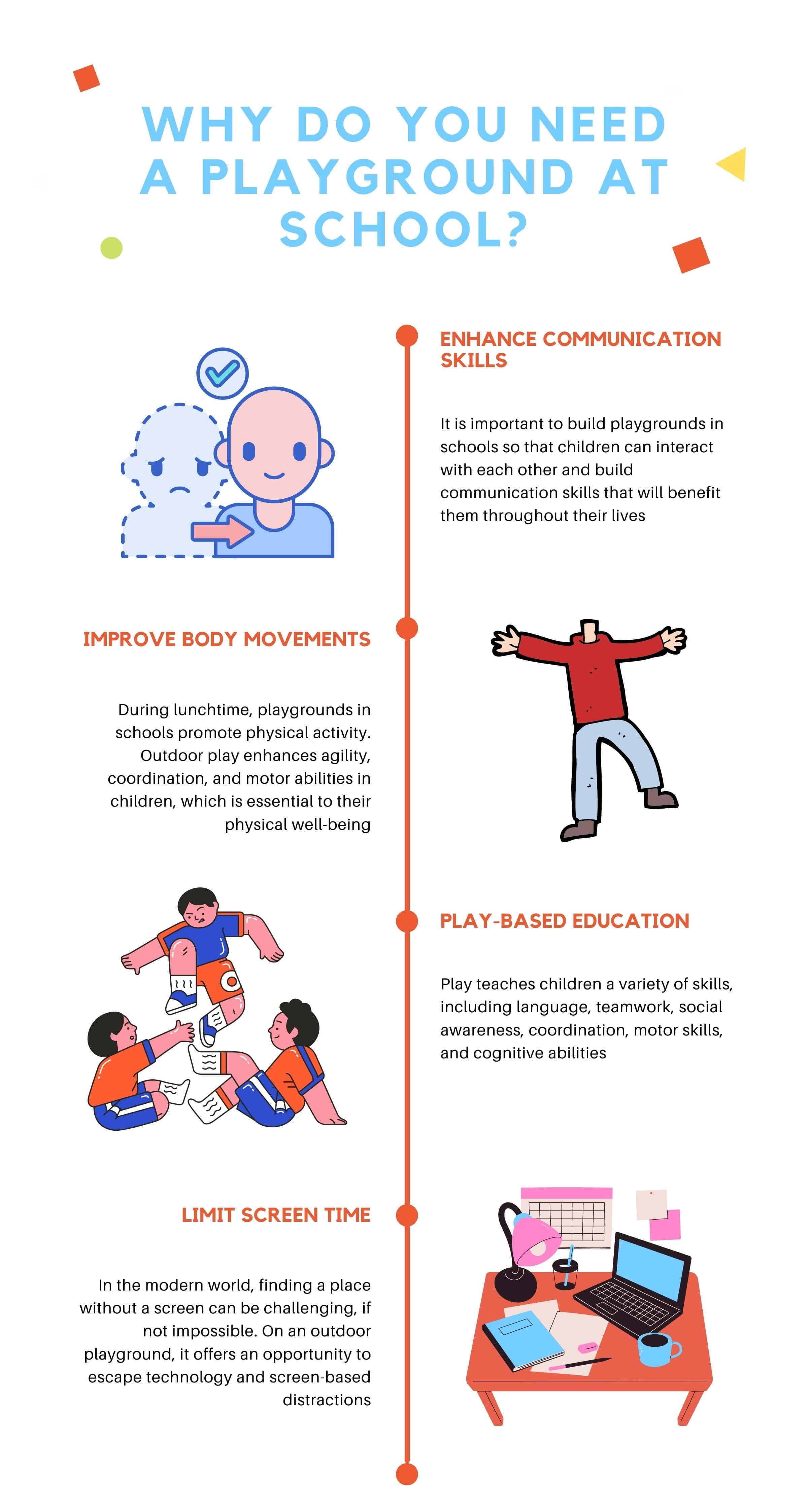
The Importance Of Having A Playground At School
Author: Austin Stanfel
Playgrounds are always fun places for children but are playgrounds essential for schools? You need to analyze the importance of having a playground at school. Playgrounds are not only crucial for building communication skills but are also necessary for the healthy development of children.
In this article, we will discuss five main reasons to build a school with a playground so that it can help persuade you to make that crucial decision if your campus has not yet invested in one and you are looking for motivation. Let us get started!
Why Do You Need A Playground At School?
1. Enhance Communication Skills:
Playgrounds must be built in schools so that children may interact with each other and build communication-building skills that will help them throughout their lives. It will help them bond with other children and form deeper friendships that will help them learn the importance of communication and making friends at school.
Children have the flexibility to meet new acquaintances and strengthen existing friendships outside of the confines of the school setting. Children must pay attention to visual and auditory signs, close attention, and convey their views when playing.
2. Improve Body Movements:
Playgrounds in schools serve the more obvious purpose of promoting physical exercise during lunchtime. Children’s agility, coordination, and motor abilities are all enhanced by outdoor play, which is crucial for their healthy physical development.
While it is lovely to play in the grass, the inclusion of structures like monkey bars, seesaws, and slides adds another level of activity and enjoyment. In addition to teaching children to trust their instincts and manage their movements, playgrounds may also help their lungs and organs operate better to thrive.
3. Play-Based Education
Typically, play is a must for a school playground and is a crucial component of development. Play is a spontaneous activity child participate in to have fun individually and collectively. Children learn various skills via play, such as language skills, teamwork, social awareness, coordination, motor skills, and cognitive capacities.
A child’s curiosity often serves as the fuel for good play. Playtime for the child gets complicated as they get older. A child’s capacity for learning and growth is severely hampered in the absence of play. Natural play is crucial for a child’s health.
4. Limit Screen Time:
Finding a place in the modern world without a screen may be challenging, if not impossible. One of its many appealing features is that it can escape technology and screen-based distractions on an outdoor playground.
There are many advantages of keeping children away from their devices and encouraging them to play in the playground. Better sleep may be achieved by getting children outside and limiting their screen time.


